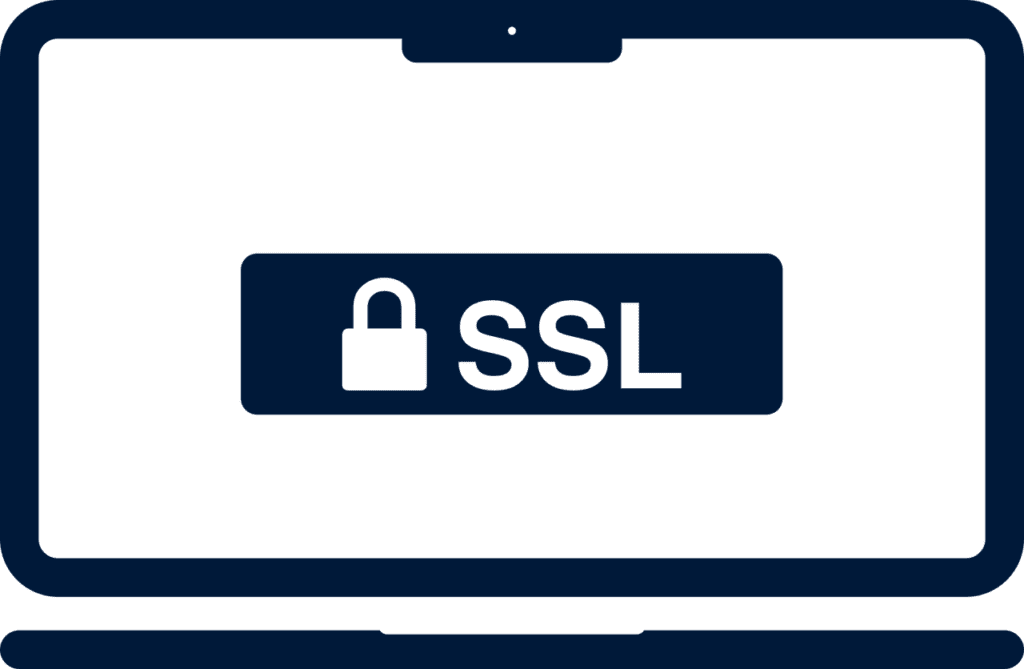
Introduction
How would you feel if you woke up one morning and tried to get into your WordPress account only to discover that your website had been hacked? You’re going to freak out, of course. Hacking attempts are possible on any website on the internet. Because WordPress is one of the most used websites on the internet, hackers have found WordPress to be an easy target. Whether you have an e-commerce store, a personal website, or a business website built on WordPress, you must ensure it is secure. But first, let’s find out why we need to secure a WordPress website.
Why Do You Need to Make Your WordPress Website Secure?
If someone hacks your WordPress website, they can do much damage. They can steal your information and passwords, harm your reputation as a business owner by affecting your revenue, and even install hazardous malware.
Sometimes, you may have to pay them to retrieve your website, so you need your WordPress to be secure.
How to secure a WordPress site?
What are the actions that you can take to secure your WordPress site? Let’s find out.
1. Install WordPress Security Plugins
Security flaws can harm a website’s authority, search engine optimization, data, and financial losses. The WordPress security features are designed to protect your WordPress website from prospective hackers or cyber-attacks.
These security plugins monitor your WordPress changes, check for any suspected malware, and limit login attempts if an unauthorized user tries to log in.
These plugins can be either free or purchased. Of course, the paid ones are the best and can better withstand the effects of an attack.
The plugins will only work successfully if you use only reliable, legitimate plugins and keep them updated.
2. Successful WordPress Hosting
Everyone wants a safe website with exceptional performance, adequate security, and a site that does not frustrate them daily. You’ll need a managed WordPress host if you want all of this. WordPress hosting comes with a lot of advantages.
WordPress hosting is a great place to host your WordPress site. It performs well since it is set up to be highly compatible with WordPress. It also includes fantastic WordPress management features.
As a result, website owners may easily maintain their sites without going through lengthy procedures.
Want maximum security against cyber criminals? Just use secure WordPress hosting.
3. Have a Strong Password
Hackers will find gaining access to your site far more challenging if you choose a strong password. Using a unique and strong password to protect your login pages can keep hackers at bay.
If you have a WordPress online store or membership site, you are likely to have customers, and other site visitors may expose your site to hackers by not using a strong password.
You can use a WordPress Plugin to make your users create a strong password that will safeguard your site.
Change your password frequently; use Numbers, uppercase letters, and special characters (@, #, *, etc.) in your password.
4. Update Your WordPress Frequently
You should update your WordPress blog at least once a week. Watch for new updates, and click on them as soon as you see them. You jeopardize your website if you wait too long to update your WordPress.
It enhances your safety. The older the version, the more likely it is to be hacked.
Outdated themes and plugins might cause problems with the WordPress core, so regularly updating your themes and plugins is a good idea.
5. Add SSL Certificate
We understand you are not a technical whiz, so let us explain SSL in layperson’s terms. SSL stands for secure socket layer. It protects web users’ information exchanged with the web server and visitor’s browser by encrypting it.
When SSL is enabled, your browser will automatically convert to SSL mode whenever secure communication between a web browser and a server is required—making it difficult for hackers to access your information.
So, adding SSL can provide you security against attackers.
6. Hide WP-Admin Login Page
If you frequently use WordPress, you would know by now that accessing the admin login of WordPress is so accessible from any website. You add /wp-admin/ at the end of the URL, and there you go.
So obviously, hackers know this trick too, well, better than we do. Changing the wp-admin URL to something more secure and known to you only is better. You can outsmart hackers and prevent brute-force attackers this way.
7. Backup Your WordPress Data
Backup your WP can safeguard your data from virus attacks, hardware failure, and website hacking. If you have backed up your data, you won’t have to recover your data if your website is hacked or your computer is infected with a virus.
It allows you to secure your WordPress site from a cyber-attack.
You can use the free WordPress backup plugins to back up your data. However, you should back up your data regularly and save it somewhere other than WordPress.
8. Transfer WP-Config File to Secure Location
Your database connection settings, root folder and URLs, and other information are stored in the config.php file in your /global folder. Let us first explain what config.php is.
The Config file is located in your GFS (Global File System) and contains the unique settings of your form tools installation. It provides information relevant to your installation and server configuration.
The WP-config.php file is an essential component of the WordPress installation. It retains database information in its databases, such as the database name, username, password, and host. As a result, it’s critical to keep it safe.
Because the wp-config file is in the root directory and hackers know it, transferring it to a more secure and unpredictable location is preferable.
9. Firewall against Security Breach
A firewall filters the traffic to your websites. It keeps the good and authorized traffic flowing and the unauthorized ones out. As a result, you are protected against security breaches.
The firewall plugin guards your website against cyber-attacks. Sucuri, StackPath, and Cloudflare are the best firewall plugins.
10. Scan WordPress to keep it clean
Scanning and checking your website regularly might alert you to potential security threats. You’ll need the correct WordPress plugins to scan your WordPress to detect dangerous codes and defend your website against attacks.
Using the appropriate plugins, you can keep your website clean and protected.
Conclusion
Taking care of your WordPress Website’s security is not a piece of cake. But it becomes easy when you know how to get this job done.
This guide highlights the top 10 proven ways to secure your WordPress website. Steps like having a solid password, adding an SSL certificate, and installing WordPress security plugins are handy.
More Resources:
10 Best WordPress Cache Plugins To Boost Website In 2023
WordPress Vs. Wix- Which Is A Better CMS?

Vijay Kumar is a digital marketing expert and founder of TechZant.
He is passionate about helping businesses grow their online presence through SEO and data-driven strategies.



